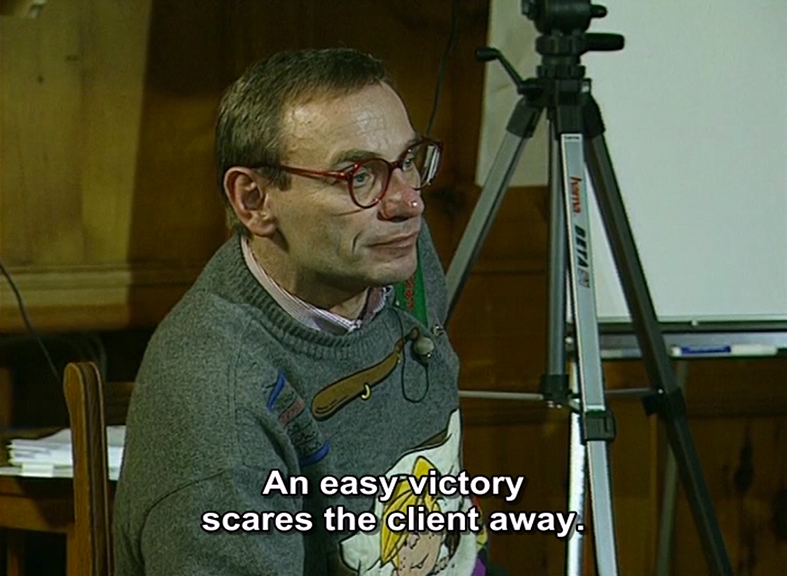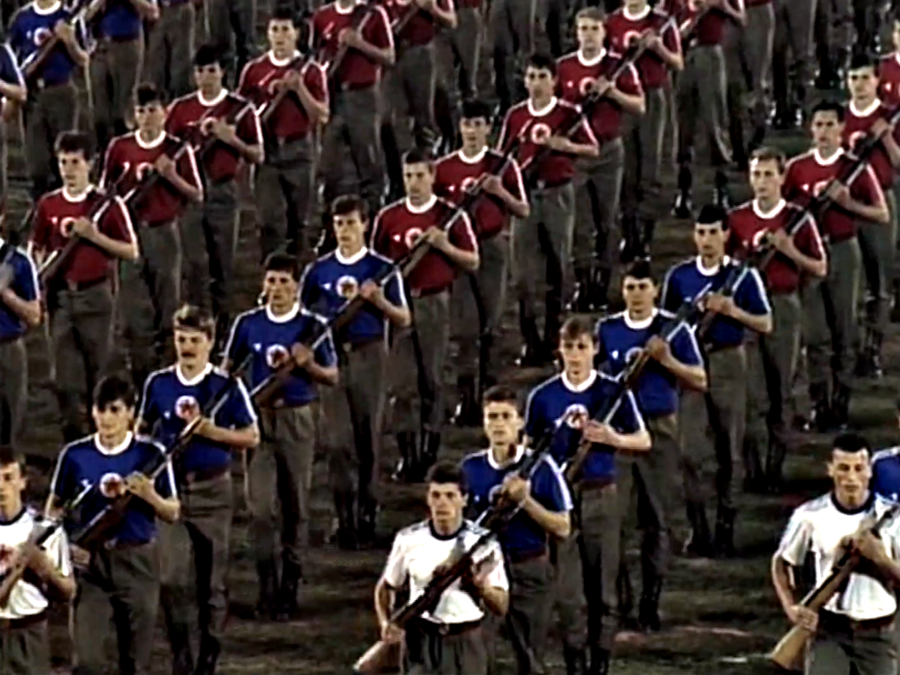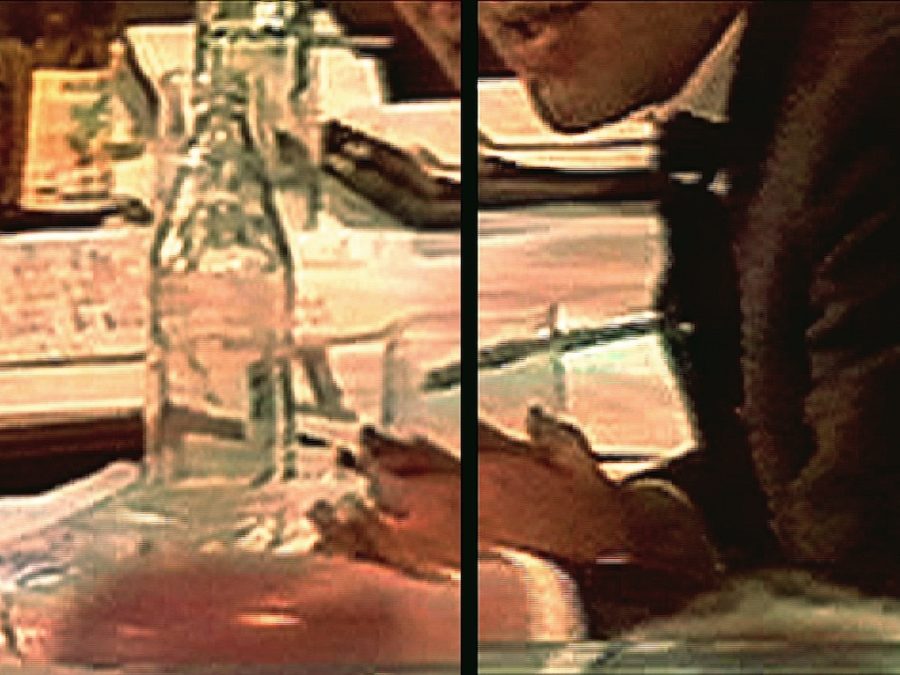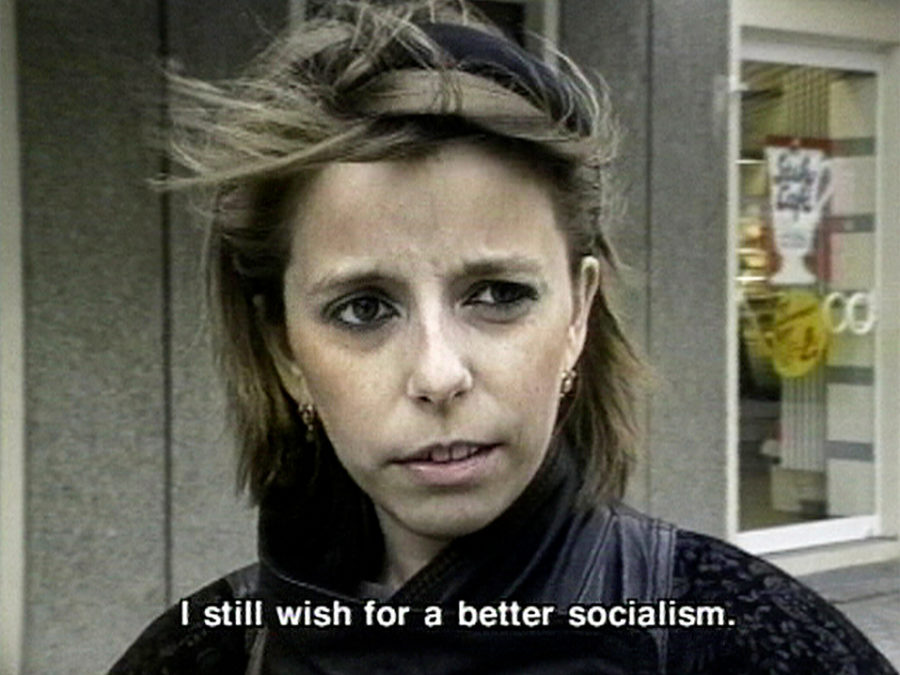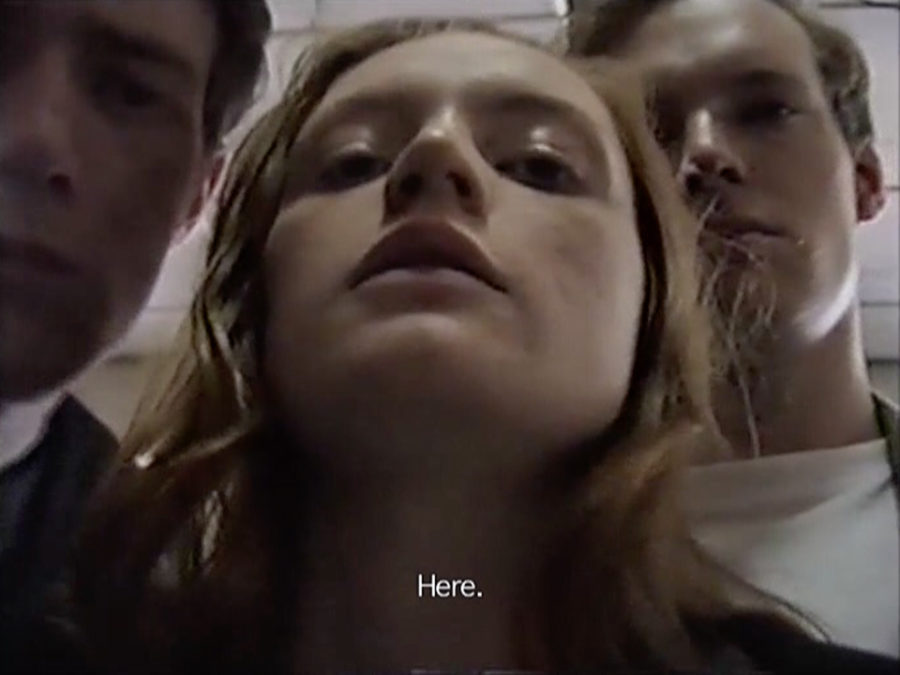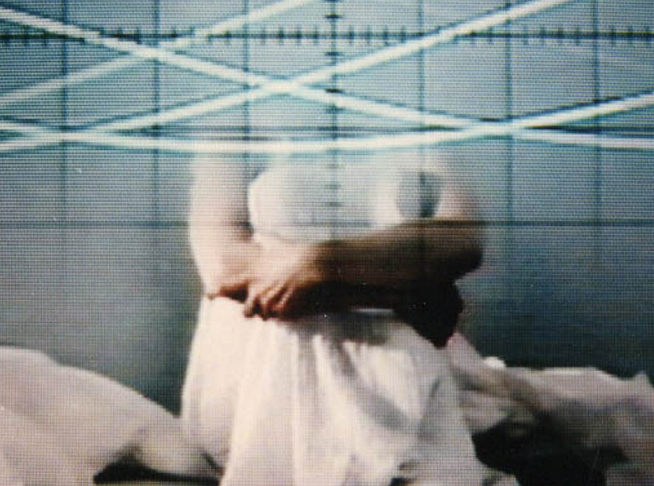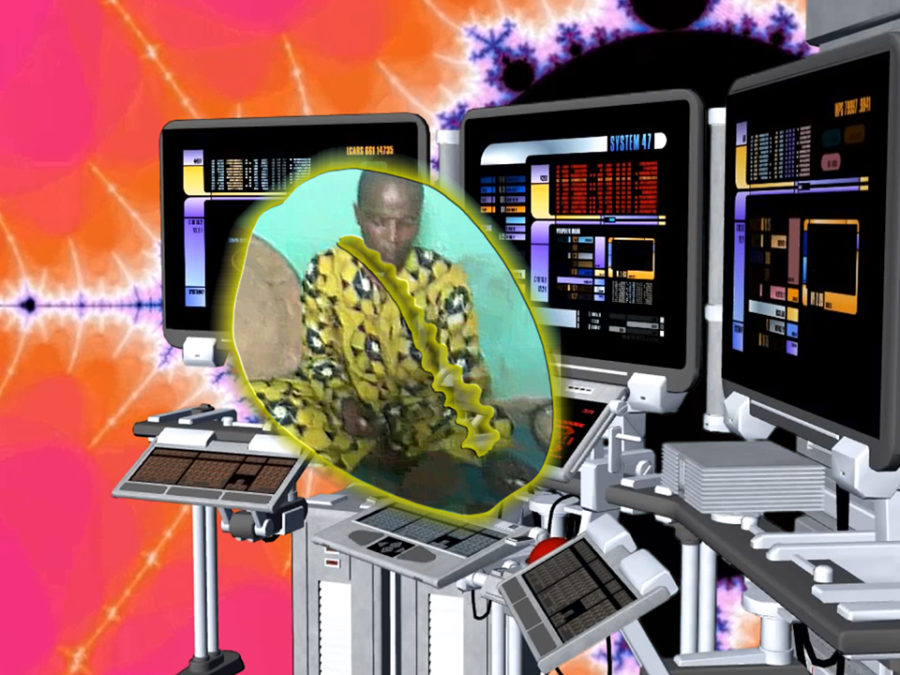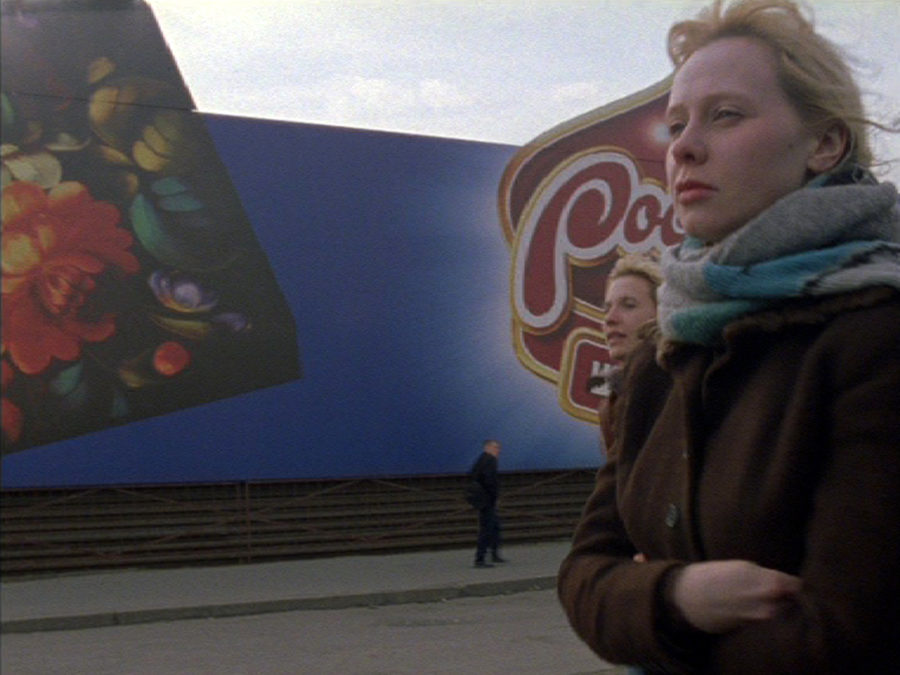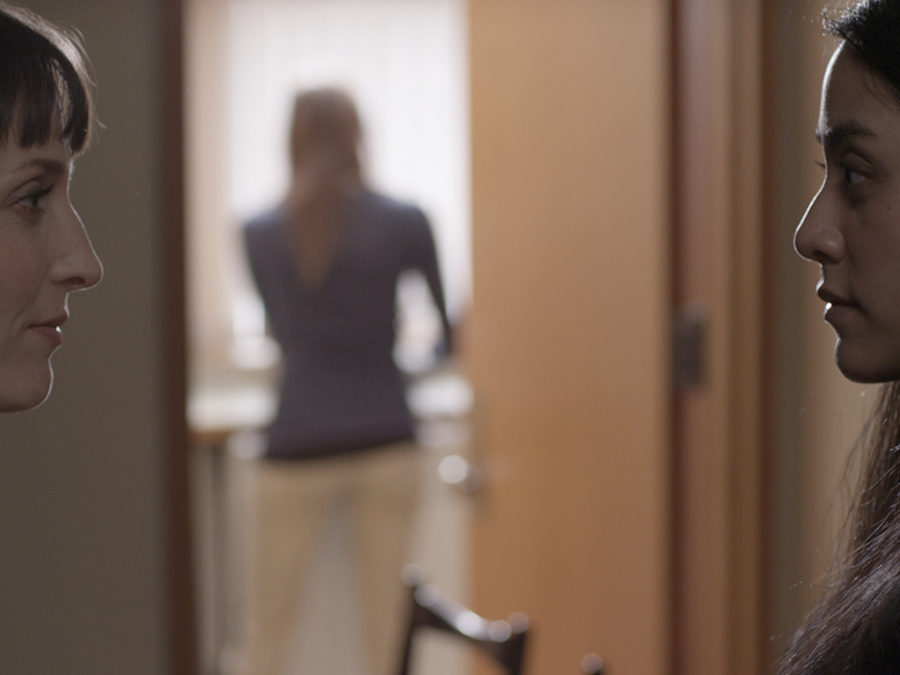Die Umschulung (eng. Retraining) is a documentary film bearing the typical marks of Harun Farocki: uncommented, everyday scenes – as part of a series of carefully rendered situations documenting professional life and corporate communication. Farocki tunes the camera to dialogs and negotiation processes that are behind the scenes, which the public would never get to hear or see. His gaze is that of an anthropologist, an amused and distanced sociological researcher.
In Die Umschulung, the objects of study are members of an East-German construction company interacting with their West-German training consultant, captured during a vocational coaching session in a hotel in the Swiss Alps. The ‘Wessi’ – or West-German – speaks eloquently, slickly, and with a good dose of self-confidence. He talks about the little tricks and manipulative devices involved in a successful client conversation. The participants in the training session are active and open. Some talk about themselves while other remain quiet, even skeptical. In role play exercises, the coach demonstrates the ‘wrong behavior,’ correcting and reprimanding the trainees. Only during the informal conversation at dinner does one of the (re)trainees offer a counteroffensive, questioning the West-German values and norms set as the new standard for professional life.
Scenes like these must have happened on a mass scale at the time. It’s 1994, and through Farocki’s lens, we are looking back at the period of East-German transition to capitalism, the expansion of the free-market economy and open competition into new markets in the reunited Republic of Germany. With it, we bear witness to the psychological and social reconditioning of East-German service providers, whose livelihoods and the viability of their businesses now hinge on their communication skills.
However, in retrospect it becomes clear that this cognitive adaptation and restructuring of the 1990s in fact impacted the entire population of both East and West. The decades after 1989 mark the hollowing out of social market economy and the consolidation of neoliberalism, which extended into all structures of macro- and micro-economics as the new paradigm of rationality.
Text by Naomi Hennig
Original title: „Die Umschulung“
Director, scriptwriter: Harun Farocki
Assistant director: Ronny Tanner
Cinematographer: Ingo Kratisch, Thomas Arslan
Editor: Max Reimann
Sound: Klaus Klingler
Assistant producer: Aysun Bademsoy, Anna Faroqhi, Elke Naters
Production: SWF, Baden-Baden, Harun Farocki Filmproduktion, Berlin
Producer: Harun Farocki
TV-producer: Ebbo Demant
Format: video-BetaSp, col., 1:1,37
Length: 44 min.
First broadcast: 09.06.1994, ARD
Awards: Adolf-Grimme-Preis, 1995 (category “General films / Information and culture”), Note commissioned for the TV series leben lernen inklusive
Harun Farocki was a Czech-born German filmmaker, video artist, and writer who directed more than one-hundred-and-twenty films and installations over the course of nearly five decades. Generations of artists and theorists have taken Farocki’s films such as Inextinguishable Fire (1969), Images of the World and the Inscription of War (1988) and Videograms of a Revolution (1992) as reference points. As the subject of several major solo exhibitions and retrospectives, he exhibited widely, also participating in the Documenta (1997, 2007). He also held teaching positions at the University of California at Berkeley, at the Berlin University of the Arts, and at the Academy of Fine Arts in Vienna.
